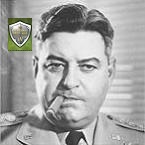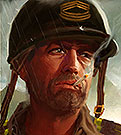warspite1
Posts: 41353
Joined: 2/2/2008
From: England
Status: offline

|
quote:
ORIGINAL: Piteas
One thing I am keen to understand more about are your thoughts on the various divisions in Spain, not just the rival political groups but also the rival regional groups - the Basques and the Catalans being perhaps the most important?
How would these be likely to react to a German invasion - i.e. were any of them likely to be pro-German in return for autonomy, or would the hatred of Germany trump any immediate nationalistic or Political issues? (as per the Ukraine, there would perhaps be little likelihood for German willingness to grant autonomy, and I would think it unthinkable with regard to the Basques as the German need to occupy the coastal areas in the north, west, and south)?
Spain has three other countries within; Galicia, Catalonia and the Basque Country (Euskadi in basque).
Everyone has their own language and culture. In these regions there are and were legal political parties and movements in favor of independence, but not in Franco's dictatorship. He was a "unifier" of Spain. His motto was "Spain, One, Great and Free". People could only speak in Spanish. So Catalonia and the Basque country suffered severe repression, less in Galicia because Franco was galician, but she also suffered a lot. A German invasion respecting basque and catalan rights could receive some support in these regions, but Germany had supported Franco (Gernika was a german operation and the basques didn´t forget). Surely there would be revenges if the wermacht entered these regions and everything would change.
Also how much do you know about Franco's own position within the Government and how secure he would be - personally I can only imagine his position strengthening as a result of standing up to Germany?
Franco had doubts in autumn 1940. He wanted to keep his good relationship with Hitler and "gain territory" because he dreamed of the spanish empire in 15-18th centuries, but fuel and grain that arrived by sea from Argentina, Canada and the United States was vital for the regime's survival. The alignment of Spain with Germany would put that supply in danger: a British naval blockade would ensue that would increase the famine that gripped the country after the civil war.
So Germany had to promise a lot of territory for Spain to go to war and, mainly, guarantee the same food supplies. It did not. Also, after the fall of France, Spanish troops took control of the international city of Tanger, in Morocco. The maneuver did not please Germany, much less Vichy, which controlled most of the Maghreb, and Italy, which harbored colonial ambitions in the area.
Hitler hoped to get Marshal Pétain's France to back him up, both in the assault on Great Britain and in North Africa. And if he had to choose between France, a colonial power with a powerful army, even if it had been defeated, and Spain, beset by famine after a civil war and with disorganized and antiquated armed forces, he preferred to stay with the former. Moreover, Germany at that time considered the war won, and Spanish aid was negligible. However, Hitler wanted Gibraltar and once again insisted that Spain enter the war (autumn 1940), but Franco resisted: on the one hand, due to the lack of specificity regarding obtaining the territories and the economic and military aid requested; on the other, because Great Britain continued to resist and, therefore, to control the seas. One incident upset all plans. Italy attacked Greece. So disastrously that a joke that recommended enlisting in the Greek army if you wanted to visit Rome became fashionable 
The Italians could hardly take the Suez Canal to close the eastern gate of the Mediterranean, so it was necessary to attack Gibraltar to control the strait as a western passage. Hitler, still without a Spanish response, launched Operation Felix with his staff. Gibraltar was planned to be attacked in mid-January 1941. The German Ministry of Defense urged the Foreign Ministry to reach an agreement with Spain as soon as possible.
At the beginning of December, Admiral Canaris met in Madrid with Franco and explained the plans for Operation Felix. It was planned that on January 10 the German troops would arrive in Spain, and, consequently, that the country would enter the war. Franco rejected it, among other reasons because the military situation was not the same as in June.
That same day, Italy had suffered a serious setback in North Africa from the British. Given the lack of agreement and the worsening of the situation in the Balkans and North Africa, Hitler ordered the freezing of Operation Felix and the suspension of the planned shipment of batteries to southern Spain, the Canary Islands and northern Morocco.
Even so, the pressure from Berlin did not abate, increasingly causing the government to fear a German invasion. The German unrest was only partially calmed with the dispatch of the Blue Division to Russia in the middle of the year, and with the supply of raw materials to Germany, the provisioning of its ships, submarines and planes, and support in intelligence matters. If anything saved Spain from involvement in the war, it was the absorption of German forces on the Balkan front, in aid of Italy, and later on the Russian.
In 1943, The progressive defeats of the Axis led Franco to maneuver towards the Allied side. He had an interview with the President of Portugal, Oliveira Salazar, in order to establish contacts with the allies. So Franco's regime changed course to survive forty years.
Finally, when the Germans do win - and ultimately they would - is there an obvious candidate as a German puppet to take the place of the deposed (and by now, very dead), Franco?
Yes, in 1941 the general of the Blue Division in Russia, Agustín Muñoz Grandes. Hitler admired him. Franco learned of the content of the talks Hitler-Muñoz Grandes and decided to dismiss Muñoz Grandes as head of the division. However, Hitler's pressure on Franco delayed his dismissal as head of the division for several months, due to Hitler's interest in increasing Muñoz Grandes' military prestige.Finally, in December 1942, he was dismissed and replaced by General Emilio Esteban-Infantes, a conservative military man who did not share many of the views of his predecessor.
warspite1
Thank-you. What I was looking for re the last point, was whether there was anyone in the political establishment (yes, or military) early autumn of 1940 (around the earliest practical time for a German attack) that would be only too happy to play German puppet?
_____________________________
England expects that every man will do his duty. Horatio Nelson October 1805  |
 Printable Version
Printable Version









 Well I can't make you agree, and clearly neither of us are going to budge on this issue.
Well I can't make you agree, and clearly neither of us are going to budge on this issue.  You've totally ignored the position Mussolini was in when he made that offer. I see you've now rather slyly introduced "He was persuaded to reinforce those troops" (no doubt referring to the creation of 8th Army rather than the point you were originally proved wrong on (initial Italian contribution). Very disingenuous but this still doesn't help you - in fact it makes your argument even weaker. Hitler only asked for more troops because of the losses suffered by the German Army and the need to plug the gaps. Mussolini agreed (against his generals wishes and the wishes of the Italian population) because he was, by 1942, totally reliant upon Hitler for his own survival.
You've totally ignored the position Mussolini was in when he made that offer. I see you've now rather slyly introduced "He was persuaded to reinforce those troops" (no doubt referring to the creation of 8th Army rather than the point you were originally proved wrong on (initial Italian contribution). Very disingenuous but this still doesn't help you - in fact it makes your argument even weaker. Hitler only asked for more troops because of the losses suffered by the German Army and the need to plug the gaps. Mussolini agreed (against his generals wishes and the wishes of the Italian population) because he was, by 1942, totally reliant upon Hitler for his own survival. 




 . That explains the overly large British presence. Just a couple of observations/questions. The British armour looks too strong (compared to a 1940 German panzer division).
. That explains the overly large British presence. Just a couple of observations/questions. The British armour looks too strong (compared to a 1940 German panzer division). 
 New Messages
New Messages No New Messages
No New Messages Hot Topic w/ New Messages
Hot Topic w/ New Messages Hot Topic w/o New Messages
Hot Topic w/o New Messages Locked w/ New Messages
Locked w/ New Messages Locked w/o New Messages
Locked w/o New Messages Post New Thread
Post New Thread